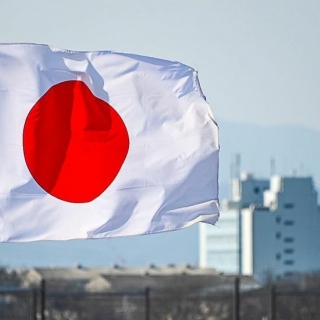


Japan's industrial production grew at the fastest clip in nearly a year, as manufacturers sought to meet strong demand before the US implements new tariffs on autos and auto parts.
Factory output increased in February by 2.5% from January, the first advance in four months and marking the fastest gain since March last year, the Industry Ministry reported Monday. Economists had expected a 2.0% gain. Output rose 0.3% from a year ago, missing the consensus call of a 1.2% rise.
The ministry also reported that retail sales increased 0.5% in February from January, while they gained 1.4% versus the previous year.
Monday's data are consistent with the Bank of Japan's assessment that the economy has recovered moderately even though there are pockets of weakness. Authorities will monitor closely to see if the rebound in output can be sustained in the face of rising tariffs in the US. US President Donald Trump signed an order last week to impose a 25% tariff on foreign-made vehicles effective April 3, with some auto parts to be added in May.
Those duties are in addition to steel and aluminum tariffs introduced earlier this month and so-called reciprocal duties set to be announced early next month.
The figures highlight the mixed dynamics at work in Japan's economy. The latest round of annual wage negotiations resulted in pledges by employers to offer the biggest wage increases in more than three decades, underscoring the competition to lure and retain staff in a tight labor market.
With the global economy likely to face major disruptions, Japan may need to rely more on domestic demand to sustain growth.
Source: Bloomberg
Asian stock markets fell in unison on Thursday, following Wall Street's decline. A brief rally in tech stocks led by Nvidia quickly faded, prompting investors to turn away from riskier assets like cry...
Asia-Pacific markets traded higher, tracking Wall Street gains overnight. Japan's benchmark Nikkei 225 rose 0.41% after hitting a fresh record high on Thursday, while the Topix added 0.61%. South Kor...
China's official NBS Manufacturing PMI increased to 49.7 in June 2025 from May's 49.5, matching market expectations while marking the third consecutive month of contraction in factory activity. It wa...
China's official NBS Non-Manufacturing PMI rose to 50.8 in March 2025, up from 50.4 in February, marking the highest reading in three months and exceeding market expectations of 50.5. The new orders ...
Asia-Pacific markets were set to fall Tuesday, tracking Wall Street declines overnight after U.S. President Donald Trump made it clear that tariffs on Mexico and Canada would go into effect as planned...
Oil prices stabilized on Thursday (February 12th), as the market reassigned a risk premium to US-Iran tensions despite US inventory data showing swelling domestic supplies. This movement confirms one thing: geopolitical headlines are still more...
Gold prices weakened slightly on Thursday (February 12th), as more solid US employment data reduced market confidence in an imminent Federal Reserve interest rate cut. The strong employment data prompted market participants to shift expectations of...
The Hang Seng Index reversed its downward trend in Hong Kong on Thursday (February 12th), weakening by around 0.9% to around 27,000 after a strong session earlier. This decline halted the momentum of the short term rally, as investors began to...